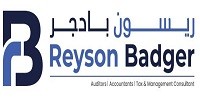Accounting Ethics: Principles and Guidelines in UAE

Accounting Ethics: Principles and Guidelines in UAE
Accounting is an integral part of the financial system and plays a vital role in the smooth functioning of any organization. As a profession, accounting has evolved over the years to encompass numerous principles and standards to ensure the accuracy and reliability of financial reporting.
Accounting ethics refers to moral principles that govern the actions of accountants while conducting their work. It forms the foundation for maintaining professional standards and integrity in carrying out accounting tasks.
In this blog, we’ll cover all you need to know about accounting ethics, its role in maintaining ethical standards, the consequences of its violation, as well as auditors’ role in ensuring ethical standards are followed.
Understanding the Basics of Accounting Ethics
Ethics is a crucial aspect of the accounting profession. Developing countries like the UAE face challenges in improving their accounting education systems. However, UAE's accounting education system is based on UK and US practices. To improve accounting education in the UAE, the obstacles hindering improvement need to be studied.
Professional accountants should put principles of independence, objectivity, and professional competence at the forefront. The CCAB Ethics Group provides case studies that help professional accountants understand ethics better. It is imperative for accounting professionals to understand basic ethical principles and uphold them in their daily work.
Accounting Ethics in the UAE
Accounting ethics in the UAE have evolved with the introduction of Islamic ethics into accounting education. The adoption of Western accounting practices has been necessary due to the lack of accounting standards in the region. The development of the accounting profession in the UAE faces significant obstacles. A new code of ethical behavior for accountants reinforces fundamental ethical principles. However, political and financial pressure increases the risk of ethical dilemmas for accountants in the UAE. In such cases, accountants should adhere to professional ethical standards and seek guidance from relevant authorities. Maintaining integrity and transparency is key to earning trust and credibility in the accounting profession in the UAE.
Principles and Guidelines for Ethical Accounting Practices
Ethical accounting practices are crucial to maintaining professional integrity, accountability, and transparency in the financial world. The UAE has adopted Western accounting systems and the International Ethical Standards Board of Accountants Code to ensure accountants maintain ethical behavior. The ICAEW Code of Ethics is also used to identify and address any threats to ethical accounting practices, including personal and financial incentives. Corporate codes of ethics are published by private sector organizations to communicate their values and beliefs to stakeholders.
In the UK, the CIPFA Standard of Professional Practice on Ethics is the first professional accountancy body to adopt the International Ethical Standards Board of Accountants Code. The UAE’s accounting education system is based on the educational models of the UK and the US. Implementation of these ethical practices ensures that professionals adhere to high ethical standards, maintain credibility and trust amongst various stakeholders, and ultimately contribute to the overall success of the business world in the UAE.
What is the role of auditors in maintaining ethical standards?
The importance of ethical behavior in Accounting is critical. Maintaining a high level of professionalism and objectivity in auditing guarantees that the accounting profession is functioning to its highest standards.
In the UAE, the Institute of Chartered Accountants of England and Wales (ICAEW) and the Consultative Committee of Accountancy Bodies (CCAB) have established codes of ethics as guidelines for accountants to maintain ethical standards.
The International Ethical Standards Board of Accountants Code (IESBA) reinforces the five fundamental principles of ethical behavior. Furthermore, corporate codes of ethics communicate values and beliefs to stakeholders, including customers, shareholders, and employees.
- The role of auditors in maintaining ethical standards is of utmost importance. The ACCA's new Code of Ethics warns against accepting gifts that may create self-interest, familiarity, or intimidation threats to compliance with fundamental principles.
- Accountants should identify, evaluate and address threats to fundamental principles such as self-interest, self-review, and intimidation to maintain high ethical standards.
- It is vital to maintain these ethical standards, as it ensures that the accounting profession has integrity and contributes to the development of a robust economy.
What are the consequences of unethical accounting practices?
Unethical accounting practices can have severe repercussions not only for the organization but also for investors, suppliers, employees, and customers. Inducements provided by stakeholders, including gifts, hospitality, or preferential treatment, may violate laws and regulations, leading to severe legal consequences. Conflicts of interest must be dealt with diligently to ensure that they do not influence business judgments inappropriately.
Unethical behavior by accountants can also lead to a loss of trust and confidence from clients and society.
Principles and guidelines for ethical behavior are necessary to ensure that accounting professionals uphold these standards. Ethical behavior may include duties such as the obligation not to engage in fraudulent activities and always to report accurate and reliable financial information.
In short, ethical behavior in accounting is essential to maintain ethical standards in a business organization, and any deviation from these standards may result in serious consequences.
Conclusion
Accounting ethics is an essential component of sound financial decision-making. It provides the foundation for ethical behavior in business and ensures that businesses are run with the interests of stakeholders in mind. The principles and guidelines set forth in the Accounting Standards and Practices (AS&P) provide a framework for ethical accounting practices and are applicable to all stakeholders—businesses, employees, shareholders, and customers.
Businesses must understand the importance of upholding these standards in order to maintain public confidence and ensure that their business practices are fair, accurate, and transparent. Auditors also have a vital role to play when it comes to maintaining ethical standards. They must be alert to any unethical behavior or decisions made by businesses or their employees that could impact financial statements and alert the management of such concerns.
If you have concerns about ethical issues arising during your work as an employee or an external stakeholder, you can approach your company’s audit committee or an appropriate regulatory body for help.

